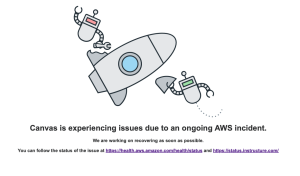The pun-damental problem
October 6, 2017
While at my summer job as an aftercamp recreation counselor, a camper asked me to help him write a script and perform for his ‘bad jokes’ routine for the talent show. Since cringe-worthy humor is my default mode of speaking, I leaped at the opportunity, and later in the day, we went on stage, ready to entertain the audience.
When the kid told me how he wasn’t watering his garden and I asked him “water you doing,” I heard the expected response(they were bad jokes after all), loud groans and boo-ing from the older folks in the auditorium, but beneath their voices, a few laughs.
Even though a few of my co-workers were temporarily disgusted by my use of puns, that camp made that summer the best I’ve ever had, and it was the highlight of my day to make a silly joke and make campers light up with joy and other counselors shake their heads and cringe.
On the opposite spectrum, though, is the senseless hatred I receive among peers at every single attempt at humor. If I ever toss out a pun while with my friends, I’m used to hearing common, demeaning insults from a few of them, including “You are actually terrible” or “I hate you now.”
I know these insults are in jest, but why is there such harsh treatment for a harmless attempt at humor? Whenever I get alienated for cracking a joke, I feel like cracking someone’s skull open to see where that hate stems from.
Many of my friends ask me why I use puns so often, and I do so primarily because I find day-to-day interactions as so formulaic and lacking in any charm. I go through the standard “Hi, how are you, good thanks” kind of conversation at least seven or eight times a day.
I don’t mean to devalue that polite conversation, but it’s almost always required before we can move on to more interesting discussions. So why not try and make that part less mundane by throwing in a little wordplay here or there?
I also employ my dry sense of humor to break up boredom. An academic environment simply can’t keep students excited to learn at all times, leading to that inevitable Monday morning look we all have. You might be sitting in chemistry studying ions, and science might not be your favorite subject.
In that case, I’ll throw in my joke about suspicious electrons “keeping anion you,” and if I’m lucky, I can at least make you chuckle, and if I’m really lucky, that effort can make school a little less miserable for you. If I can make at least one person’s day more positive, then I’m willing to take the negativity from a few ‘electrons’.
Even making a friend cringe is rewarding in it’s own way. I can’t count the number of times I’ve cracked a joke that was so genuinely terrible that my friends and I all started to shake our heads, grinning while cringing at the failed attempt at humor.
What I’m trying to get at from this defense of puns is that there’s no better feeling than making someone laugh or smile, especially if they’re feeling down. That gleam of hope that arises if I break someone’s string of sorrow, even for just a moment, makes my presence on Earth feel justified.
I also recognize, though, that puns aren’t always necessary and can be excessive at times. There are some moments that are already great and don’t need an espresso of lighthearted humor to spur them into further greatness.
Asking a friend “water you looking at” while enjoying a superb view of a river valley might just bog down the moment and ruin it’s unspoken beauty. Definitely not speaking from experience for that one.
I think that idea of unspoken beauty gets at the core issue of contention regarding puns and their usage. A conversation can feel abruptly interrupted when someone throws a pun into the mix, rendering the conversation as a frivolous thing to be made light of and not something to be taken seriously.
In the situation where you’re talking and you suddenly think of something funny to say, you have to make a crucial decision.
Will you speak your mind aloud and risk being shunned, or just mind your own business and keep it unspoken?
How’s that for a pun-chline?












































